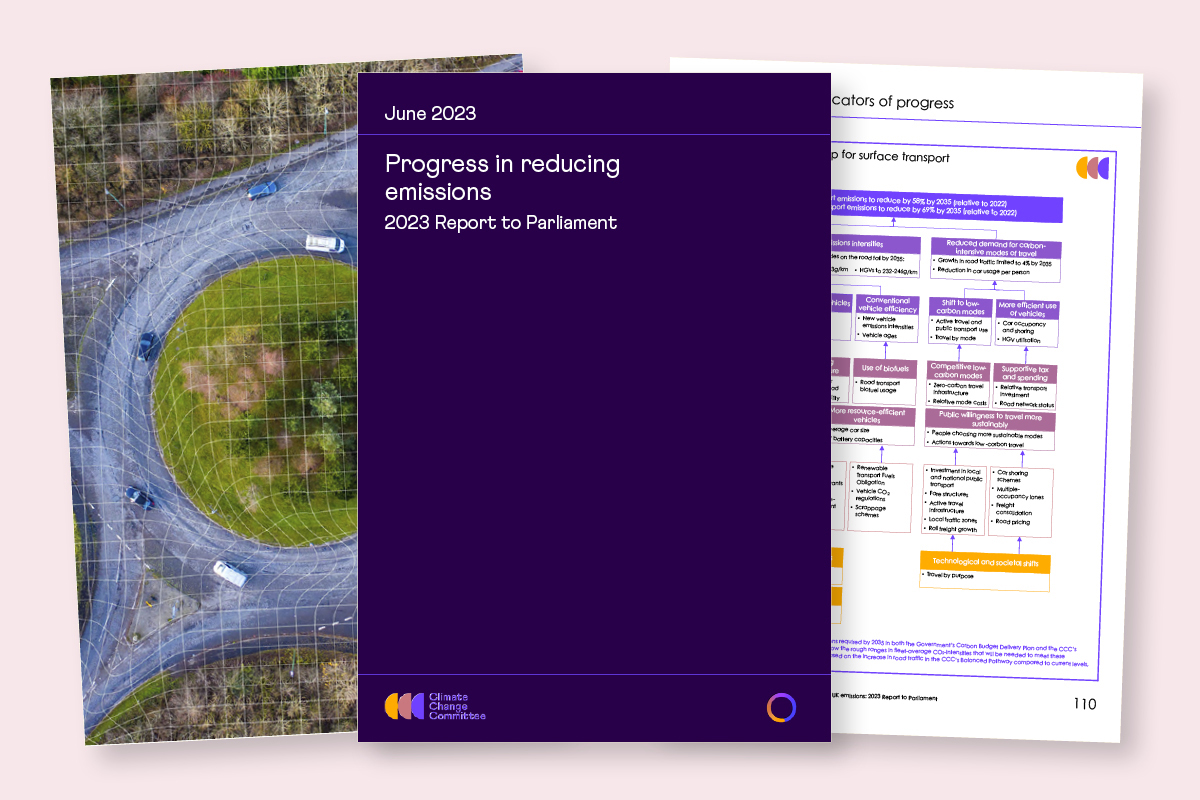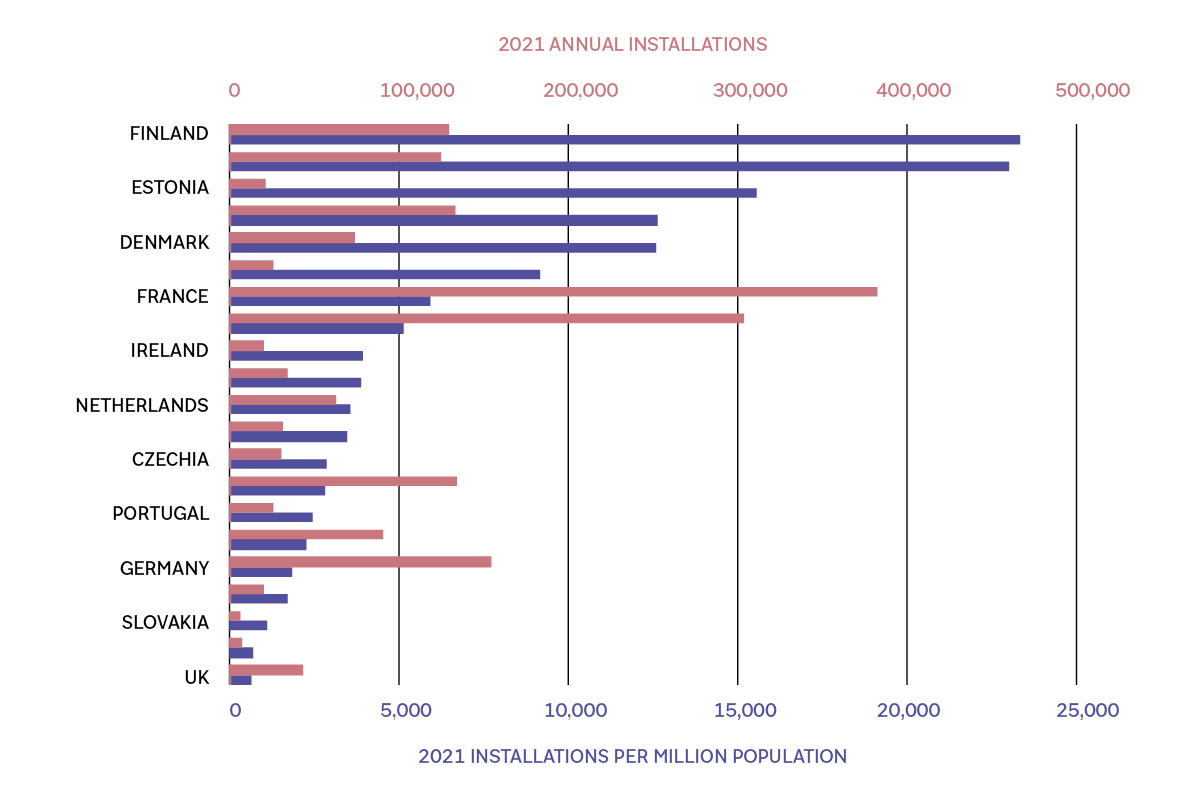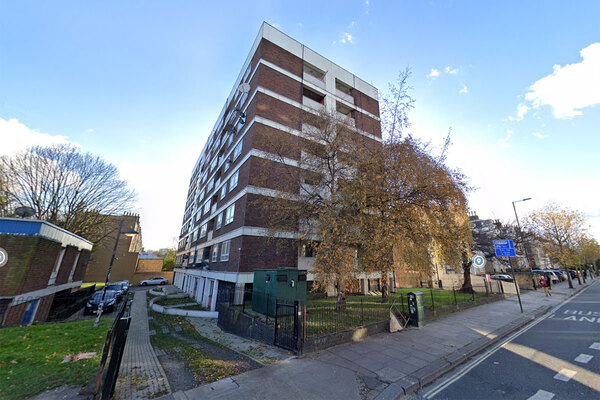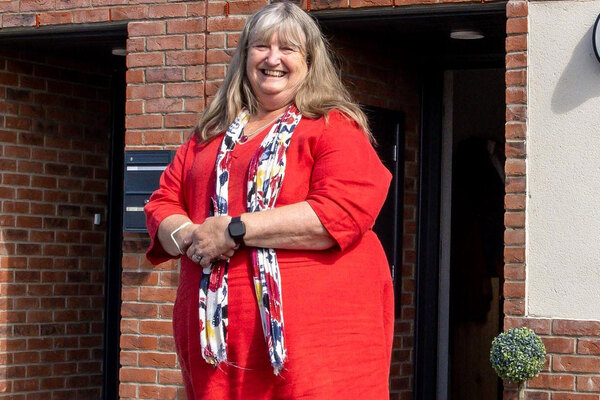You are viewing 1 of your 1 free articles
What the climate change report means for housing
The Climate Change Committee’s summer progress report on the UK’s efforts to cut emissions included a stark warning that the built environment sector was not moving fast enough. Jess McCabe pulls out the key details for the housing sector
This summer, the Climate Change Committee (CCC) published a progress report. The CCC is an independent government body that tracks the UK’s progress in cutting carbon emissions. The report was a wake-up call that criticised the lack of urgency on policies and actions.
Not least among the issues was the lack of policy certainty and action on cutting emissions from energy use in buildings, which the report says is the second-biggest cause of emissions in the UK.
“The government urgently needs to co-ordinate a shift in how the UK’s 28 million homes and two million non-residential buildings use energy,” it warned.
The report also tracked how installation of energy efficiency measures and heat pumps are measuring up to targets. Here, Inside Housing breaks down some of the key takeaways for the housing sector, showing how far we need to go and giving some indication of the policy path that is likely to emerge.
Policy recommendations
The report makes 55 specific recommendations for UK governments regarding emissions from buildings. The headlines include:
- Set long-term regulatory standards for social housing to reach Energy Performance Certificate (EPC) Band C by 2028.
- Current policy in England is for social homes to reach EPC Band C by 2030, but regulations to enforce this and steps to get there are thin on the ground.
- The Scottish government’s energy efficiency standard for social housing means most social homes will meet EPC Band B by 2032, with some exceptions, and none below EPC Band D will be relet after 2025, again subject to some exceptions.
- In the private rented sector, the Climate Change Committee says the government should implement its previously promised policy to require private rented homes in England and Wales to reach EPC Band C by 2028.
- On owner-occupied homes, the committee recommends that the government needs new policies to ensure they reach EPC Band C by 2035, with the suggestion that requirements be introduced at the point a home is sold, or through tax incentives. Another option could be mandatory standards for mortgage lending.
- The report says the government should finalise plans to phase out fossil fuel boilers from 2026 and prohibit connections to the gas grid for new buildings from 2025, setting out routes for other buildings.
- There is an urgent recommendation for the Treasury to confirm schemes including the Social Housing Decarbonisation Fund will continue to be fully funded beyond the Spending Review period.
130,000
Heat pump installations the CCC says should have taken place in the UK in 2022 on its “balanced pathway” to net zero by 2050
72,000
New heat pumps installed in 2022
55
Recommendations on buildings emissions for the government in the report
16%
Reduction in buildings’ emissions in 2022, although the CCC report puts this down to the winter being unusually mild
17%
Percentage of UK emissions to come from buildings, the second-biggest cause of emissions
in the UK
30%
Reduction in total energy demand from buildings needed by 2035, from 2021 levels
50%
Heat demand from buildings that should be met by low-carbon heat sources by 2035
Sign up for our asset management newsletter
Already have an account? Click here to manage your newsletters
















